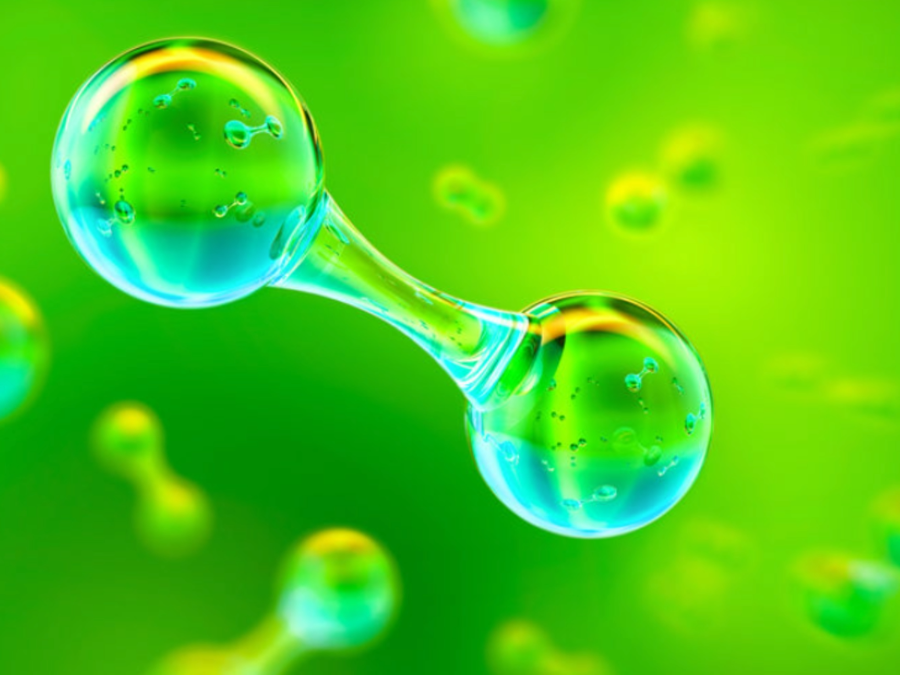Hydrogen from methanol a route for sustainable development goal
In order to address the global energy and environmental challenges, research on hydrogen is crucial. When used, it produces only water vapor, making it a clean energy source that helps mitigate climate change. Moreover, hydrogen is an excellent energy storage medium, which enables the integration of renewable sources. It is also important for businesses and can play a significant role in clean transportation. Progress in this field is driven by international collaboration, which generates economic benefits and job opportunities. With researchers exploring its potential across various applications, this versatile element is indispensable for building a sustainable energy future.
Why hydrogen is essential to achieve net-zero emissions by 2050?
Hydrogen plays a crucial role in reducing carbon emissions, particularly in high-emission sectors such as heavy industries and long-distance transportation. Despite an increase in project announcements, only 5% of them have been financed due to unpredictability in demand, certification, legislation, and infrastructure. Established industries still account for most of the hydrogen demand, while new uses remain underdeveloped. To achieve Net Zero Emissions by 2050, rapid changes in legislation are necessary to increase demand, encourage investment, and facilitate the expansion of low-emission hydrogen production and infrastructure deployment.
Why alternative sources for preparing hydrogen?
A versatile energy source that solves major energy problems is hydrogen. Currently, its primary uses are the refinement of crude oil and the production of chemicals, many of which are produced from fossil fuels like coal and natural gas and hence result in considerable annual CO2 emissions. When it comes to difficult industries like long-distance transportation, chemicals, iron, and steel, clean hydrogen is essential for lowering emissions. Renewable or nuclear energy, fossil fuels with carbon capture, or biofuels can all be used to create clean hydrogen. Vehicles that run on hydrogen fuel can help to increase energy security and air quality. Hydrogen is also one of the few available choices for long-term energy storage, which can last for days to months and allows the integration of sporadic renewable energy sources into the power system.
Hydrogen from methanol, a long-term solution
A thorough study on the global market for methanol reforming catalysts for hydrogen production was published by Global Info Research in 2023. With an emphasis on China’s dominant position, the study offers a thorough overview of the industry while also covering significant geographic areas like North America, Europe, and Asia-Pacific. The important market drivers, inhibitors, opportunities, and new product developments are also included in the research. An inventive catalyst for converting methanol to hydrogen is currently being developed. The typical methanol-reforming procedures were heated up and used in conjunction with carbon dioxide, a greenhouse gas, by researchers at IIT Guwahati to achieve this. By allowing the selective generation of hydrogen and valuable formic acid from wood alcohol at a lower temperature, this innovation addresses the shortcomings of traditional techniques. For this function, the researchers developed a specialized “pincer” catalyst. This discovery contributes to international efforts to lower carbon emissions and switch to cleaner energy sources.
The Methanol-to-Hydrogen Fuel Cell System’s First On-board Test Results in Success
Powercell Group, a methanol-to-hydrogen technology producer, has confirmed the successful testing of technology that enables the conversion of onboard methanol fuel into hydrogen for ship propulsion. The Hydrogen One inland push-boat, designed by Maritime Partners, uses a 1.4MW methanol-to-hydrogen system for its power generation, which was validated using this cutting-edge system. An extensive string test, which included the integration and testing of all major powertrain components, was conducted at the Powercell Group’s headquarters in Gothenburg, Sweden. According to CEO Richard Berkling, these positive test results provide ship owners, integrators, and methanol suppliers with more confidence in the potential for fuel cells and methanol to work together as an effective energy solution for the marine sector.
SFC Energy Starts Producing Hydrogen and Methanol Fuel Cells in India
Production of hydrogen and methanol fuel cells has begun at SFC Energy AG’s Indian site in New Delhi/Gurgaon. The medium-term goal of this project, which is being carried out in cooperation with a seasoned Indian partner, FCTecNrgy Pvt Ltd (“FCT”), is to generate annual sales of about EUR 100 million. The project, which was finished in less than six months, supports India’s “Make in India” effort and improves its economic standing as an environmentally friendly nation. Dr. Robert Habeck, a federal minister, took part in the launch and emphasized the necessity of India’s and Germany’s shared climate-friendly transition. In an effort to minimize CO2 emissions, India has made a commitment to a bold growth of renewable energy sources and the production of green hydrogen by the year 2030. SFC Energy’s fuel cell solutions have already been popular with users who are having problems with grid reliability in India’s public sector. The regional production plant demonstrates SFC Energy’s commitment to the expansion of the Indian market. In response to rising demand, the company’s fuel cell solutions offer clean electricity based on hydrogen and methanol. The relationship between SFC Energy India Ltd. and FCT is bolstered by their partnership in this strategically important growth market. The main ideas of the original text are well communicated in this shortened version.
Scientists at ARCI have developed an energy-efficient method for producing hydrogen with a lower carbon footprint
Indian scientists at ARCI have developed an energy-efficient method for producing high-purity hydrogen (99.99%) from a methanol-water mixture. This electrochemical methanol reformation (ECMR) process uses just one-third of the electrical energy needed for traditional water electrolysis. The advantages include lower temperature and pressure requirements, eliminating the need for hydrogen separation steps. ARCI has already created an electrolysis unit with a 5.0 kg/day capacity to produce pure hydrogen and is exploring integration with renewable energy sources. This breakthrough is poised to reduce hydrogen production costs and contribute to India’s clean energy transition.
Sources
- https://www.iea.org/energy-system/low-emission-fuels/hydrogen
- https://www.iea.org/reports/the-future-of-hydrogen
- https://weather.com/en-IN/india/science/news/2023-05-01-iit-guwahati-develops-new-method-for-green-hydrogen-production
- https://www.openpr.com/news/3214462/methanol-reforming-catalyst-for-hydrogen-production-market
- https://www.ship-technology.com/news/success-world-first-methanol-hydrogen-fuel/?cf-view
- https://www.sfc.com/en/sfc-energy-starts-production-of-hydrogen-and-methanol-fuel-cells-in-india/
- https://www.sciencedirect.com/science/article/abs/pii/S0360544220324919
- https://www.bitsathy.ac.in/dynamic-hydrogen-production-from-methanol-using-ruthenium-catalyst/
- https://www.bitsathy.ac.in/direct-methanol-fuel-cell/

